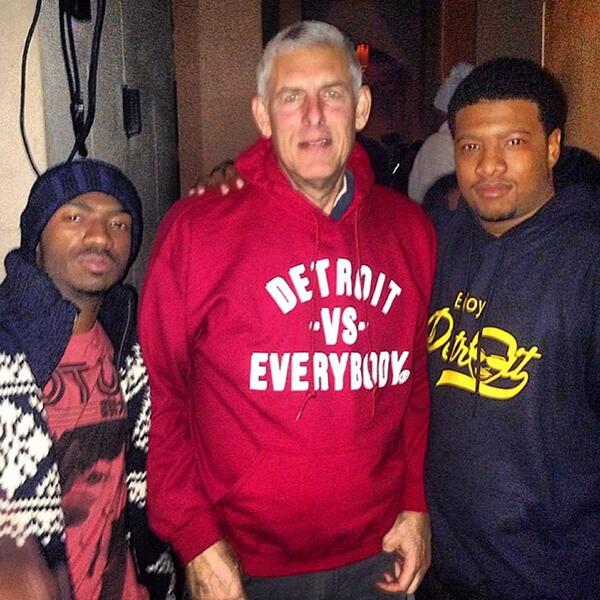

The way he mentioned artist names, or song titles, I could immediately tell that he wasn't a fan of that music/artist. However, there were times when it became very obvious that he was not a fan. Specific to the audiobook: I'll add that the reader/performer, Kevin R. I feel this book was very thorough and I'm glad I got an opportunity to enjoy it. Rick Rubin falls out of the story, but, that falls in harmony with how he "fell" out of the company.

I learned a lot about Rick Rubin and Russell Simmons - including details about Russell's not-always-hidden-drug use. The last few years of the book seemed to just rush by in comparison to the extensive details shared about the company's creation. I'd heard about how Rick Rubin started the company in his dorm room, but this book helps you feel like his roommate. Rick Rubin falls out of the sto I really liked this collection of stories and perspectives that helped to form the big Def Jam picture.

I really liked this collection of stories and perspectives that helped to form the big Def Jam picture. Both an intriguing business history as well as a gritty narrative, here is the definitive book on Def Jam-a must read for any fan of hip-hop as well as all popular-culture junkies.more is a journey into the world of rap itself. She takes you back to New York in the '80s, when late-night spots such as Danceteria and Nell's were burning with young, fresh rappers, and Simmons and Rubin had nothing but a hunch that they were on to something huge.įar more than just a biography of the two men who made it happen, Def Jam, Inc.

Stacy Gueraseva, former editor in chief of Russell Simmons's magazine, Oneworld, had access to the biggest players on the scene, and brings you real conversations and a behind-the-scenes look from a decade-and a company-that turned the music world upside down. traces the company's incredible rise from the NYU dorm room of nineteen-year-old Rubin (where LL Cool J was discovered on a demo tape) to the powerhouse it is today from financial struggles and scandals-including The Beastie Boys's departure from the label and Rubin's and Simmons's eventual parting-to revealing anecdotes about artists like Slick Rick, Public Enemy, Foxy Brown, Jay-Z, and DMX. Soon they would revolutionize the music industry with their groundbreaking label, Def Jam Records.ĭef Jam, Inc. Though the two came from different backgrounds, their all-consuming passion for hip-hop brought them together. Few could or would have predicted that the improvised raps and raw beats busting out of New York City's urban underclass would one day become a multimillion-dollar business and one of music's most lucrative genres.Īmong those few were two visionaries: Russell Simmons, a young black man from Hollis, Queens, and Rick Rubin, a Jewish kid from Long Island. Among those few were two visionaries: Russell Simmons, a young black man from Hollis, In the early '80s, the music industry wrote off hip-hop as a passing fad. Few could or would have predicted that the improvised raps and raw beats busting out of New York City's urban underclass would one day become a multimillion-dollar business and one of music's most lucrative genres. In the early '80s, the music industry wrote off hip-hop as a passing fad.


 0 kommentar(er)
0 kommentar(er)
